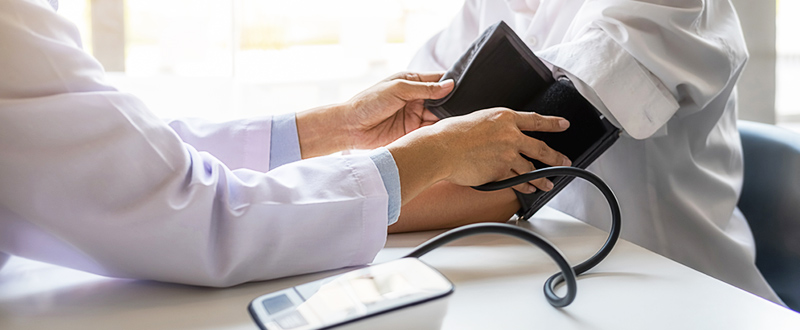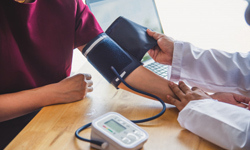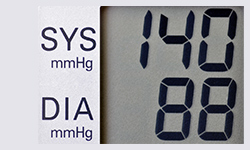Hypertension FAQs. Answered

Despite this evident severity of hypertension, there’s still not enough awareness about the medical condition. People often find themselves caught off-guard when asked about hypertension, its causes, effects, and treatment. When diagnosed, a lot of patients and caregivers have questions about managing hypertension. Through this article, we’ve tried to answer some of the most frequently asked questions by hypertensives.
What Is Hypertension?

I’ve Never Had It Before, Why Now?
The cause of high blood pressure is not known. It is often the result of an underlying condition which could be due to:
How To Measure And Understand The Readings?

What Are The Complications?
Excessive pressure on artery walls due to high blood pressure causes damage to the body’s blood vessels and organs. It can further lead to:
What Are The Treatments?
Your doctor can determine the best treatment for high blood pressure after considering the type of hypertension and its causes. Following are some important aspects that are included in a hypertension treatment plan as prescribed by doctors.
What Sort Of Dietary Changes Should I Make?
A healthy diet such as DASH (dietary approaches to stop hypertension) is recommended to lower high blood pressure. This includes-
When To See The Doctor?

Conclusion
If you have been diagnosed with hypertension, do not panic. Consult your doctor and gather as much info as you can on the disease that will help take care of your body.
Move towards positive lifestyle changes such as exercise, adequate sleep, healthy food, and managing stress. This, along with the medication prescribed by your doctor, can help you in tackling it effectively.
Note of Caution: This article is for information purpose only. Always consult your doctor in case of any blood pressure or other health-related problems.
Disclaimer
The information contained in this article/s is to educate / spread awareness in relation to hypertension and other diseases to the public at large. The contents of this article/s are created and developed by BPinControl.in (“The Website”) through its authors, which has necessary, authorisations, license, approvals, permits etc to allow usage of this articles on The Website. The views and opinions expressed in this article are views, opinions of the respective authors and are independently endorsed by doctors. Although great care has been taken in compiling and checking the information in this article/s, The Website shall not be responsible, or in any way liable for any errors, omissions or inaccuracies in this article/s whether arising from negligence or otherwise, or for any consequences arising therefrom. The content of this article is not a substitute for any medical advice. The Website shall not be held responsible or liable for any consequence arising out of reliance on the information provided in the article.

 This could be due to genetic disorders received from your parents.
This could be due to genetic disorders received from your parents. High blood pressure could occur due to some inherent body changes, such as a change in kidney functioning, etc.
High blood pressure could occur due to some inherent body changes, such as a change in kidney functioning, etc. Lack of physical activity and poor diet can lead to weight problems that increase hypertension risk.
Lack of physical activity and poor diet can lead to weight problems that increase hypertension risk. Predominantly sedentary lifestyle, erratic eating habits, lack of exercise, smoking, excessive drinking are some habits that can contribute to the occurrence of hypertension.
Predominantly sedentary lifestyle, erratic eating habits, lack of exercise, smoking, excessive drinking are some habits that can contribute to the occurrence of hypertension. Heart attack or stroke
Heart attack or stroke The inappropriate bulge in the artery wall that can rupture
The inappropriate bulge in the artery wall that can rupture Failure of kidney
Failure of kidney Dementia
Dementia Aneurysm
Aneurysm Exercise regularly
Exercise regularly Keep yourself stress-free
Keep yourself stress-free Medication: Hypertension can be treated with medication recommended by your doctor. This includes-
Medication: Hypertension can be treated with medication recommended by your doctor. This includes-
 Limit consumption of meat
Limit consumption of meat Eat green leafy vegetables, fruits, and low-fat dairy foods
Eat green leafy vegetables, fruits, and low-fat dairy foods Reduce sodium
Reduce sodium Reduce sugary food and sugar
Reduce sugary food and sugar Quit smoking
Quit smoking Avoid consuming alcohol
Avoid consuming alcohol
Comments (0)
No comments found.Add your comment